Introduction
How Long Can Parakeets Go Without Food: Parakeets, those charming and colorful members of the parrot family, are popular pets known for their vibrant plumage and cheerful personalities. Whether you’re a seasoned parakeet owner or considering bringing one into your home, it’s essential to understand their dietary needs and how long they can go without food in case of unexpected circumstances. Parakeet nest also known as budgerigars or simply “budgies,” are small, social birds native to Australia. Their diet in the wild primarily consists of seeds, fruits, and vegetation. In captivity, it’s crucial to replicate their natural diet to ensure their health and well-being.
A balanced diet for pet parakeets typically includes high-quality seeds, fresh fruits, vegetables, and a source of clean, fresh water. However, their small size and high metabolic rate mean they can’t endure extended periods without sustenance. In general, parakeets can survive without food for approximately 24 to 48 hours, depending on various factors such as their age, overall health, and environmental conditions. Younger birds and those with pre-existing health issues may have a shorter tolerance for food deprivation. Depriving your feathered friend of food for an extended period can lead to severe health problems, including malnutrition, weakness, and organ damage.
The stress caused by such conditions can have lasting negative effects on their mental and physical well-being. In emergencies or situations where you can’t food immediately, it’s crucial to ensure your parakeet has access to clean, fresh water. Dehydration can set in much faster than starvation and can be equally detrimental to their health. If you anticipate being away from your parakeet for an extended period, it’s advisable to arrange for a trusted friend or pet sitter to care for them in your absence to ensure they receive their proper diet and attention.
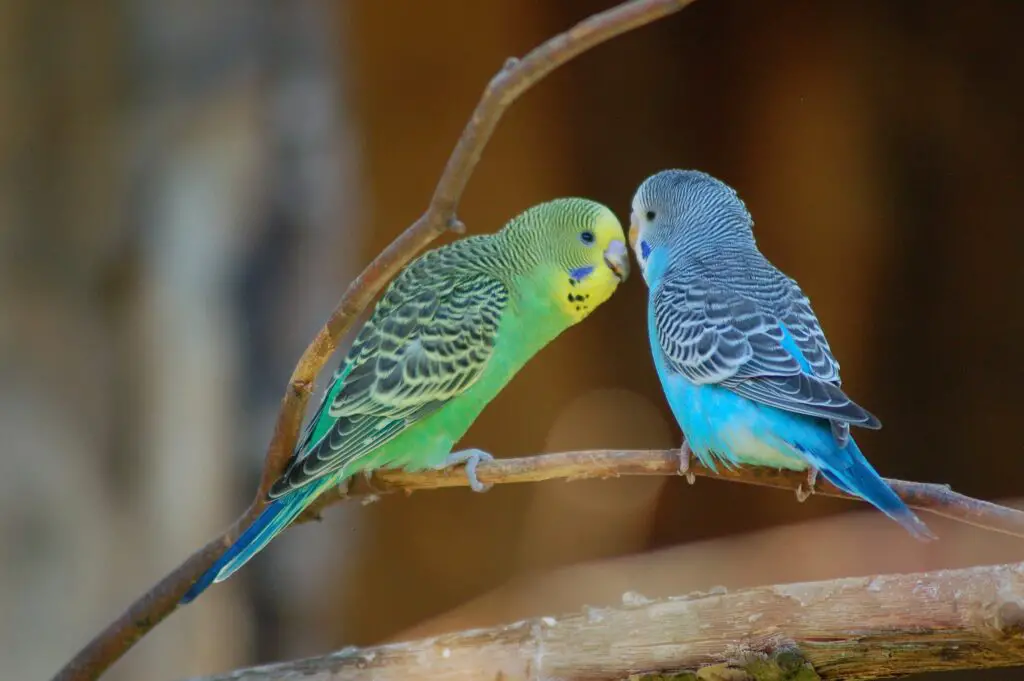
How often do parakeets need to eat?
Parakeets have a very active metabolism and can easily become ill if they go without food for 24 hours. Parakeets should be provided with a staple diet of fresh parakeet seed or pellets daily. Be sure to check the food dish daily, as they will only eat from the top of what is offered.
Daily Meals: Parakeets should have access to fresh food and water every day. In the wild, they forage for food throughout the day, and this behavior should be replicated in their captivity. A key component of their diet is a high-quality seed mix designed for parakeets. Look for commercially available parakeet seed blends that include a variety of seeds, such as millet, canary grass seed, and sunflower seeds.
Fresh Fruits and Vegetables: Into seeds, parakeets benefit from fresh fruits and vegetables. Offer them a variety of produce such as apples, pears, carrots, broccoli, spinach, and bell peppers. These items should be washed thoroughly and cut into small, manageable pieces to prevent choking.
Pellets: Many parakeet owners also pelleted food designed specifically for parakeets. These pellets are formulated to a balanced diet and contain essential nutrients, vitamins, and minerals. They can be offered alongside seeds and fresh produce. Parakeets enjoy the occasional treat, but these should be offered in moderation. Millet sprays or other parakeet treats can be given as rewards or for mental stimulation.
Should parakeets always have food?
Parakeets’ diets can be supplemented with greens
Seed should always be available, and the feeders will need topping up every day. Treats, such as millet sprays or store-bought ‘seeds-on-a-stick’, should be fed no more once a week.
Parakeets thrive when they are with a consistent feeding schedule. Offering food at specific times of the day, such as in the morning and evening, aligns with their natural feeding rhythms and helps establish routine. Leaving food out for extended periods can result in food becoming stale or contaminated. Parakeets may be reluctant to eat food that has lost its freshness, and it could also lead to health issues if they consume spoiled or moldy food.
Leaving food out continuously can lead to overeating and obesity in parakeets. These birds may not have a natural “stop” mechanism when it comes to food, and they might continue to eat even when they are full. Obesity can lead to various health issues in parakeets, including heart problems, joint pain, and decreased lifespan.
Having scheduled feeding times allows you to monitor your parakeet’s food consumption more effectively. If you notice a sudden decrease in appetite or any unusual eating behavior, it could be an early sign of illness, and prompt attention from a veterinarian is essential. Parakeets have a habit of picking through their food, often discarding certain seeds or bits they don’t like.
What do parakeets do when hungry?
Just like babies, birds make fussy noises, including squawks and screeches, when they are hungry. This is similar to the behavior of young wild nestlings, which make noises to get their parents’ attention and receive more food. A hungry bird will keep visiting its food bowl, hoping for tidbits to appear.
Increased Activity: One of the most noticeable signs of hunger in parakeets is increased activity. Hungry parakeets become more restless and may move around their cage or aviary more frequently. They might hop, fly short distances, or explore their surroundings in search of food.
Vocalizations: Parakeets are known for their cheerful chirping and chattering, but when they’re hungry, they may become more vocal and persistent. Hungry parakeets may vocalize with greater intensity or frequency to get your attention and signal their hunger.
Preening: Parakeets are meticulous groomers, and they often engage in preening to maintain their feathers’ cleanliness and condition. However, when hungry, they may reduce their preening activity and focus more on finding food.
Nudging or Pecking at Food Dishes: If you observe your parakeet repeatedly pecking or nudging at their food dishes, it’s a clear indication that they are hungry and searching for sustenance. This behavior is a direct attempt to access their food.
How often do parakeets poop?
A healthy parakeet will poop every 5 to 10 minutes (6-12 times an hour). Again, this aspect depends heavily on the subspecies of parakeet that you own. Small birds poop more often than adult parakeets. Budgies, for instance, poop every 12 to 15 minutes, for a total of 40-50 times a day.
Frequency: Parakeets usually poop anywhere from every 10 to 30 minutes, depending on various factors like their age, diet, and activity level. Younger parakeets and those with more active metabolisms may poop more frequently.
Dietary Influence: The type of diet your parakeet consumes can impact their excretion frequency. Parakeets on a seed-based diet may produce more waste compared to those on a pellet-based diet. Seeds contain hulls that are often indigestible and pass through the digestive system largely unchanged.
Fluid Intake: Parakeets that consume more fluids, either from their water dish or by eating fresh fruits and vegetables, may have more watery droppings. This can result in slightly more frequent pooping.
Stress and Anxiety: Parakeets can sometimes have increased bowel movements when they are stressed, anxious, or frightened. Changes in their environment, the presence of predators, or sudden loud noises can trigger this response.
What is a parakeets favorite food?
Parakeets love broccoli florets, dark leafy greens, finely chopped carrots, sweet potatoes, and other veggies. A seed mix is not going to provide adequate nutrition. You need to be feeding a nutritionally balanced diet. Pellets are an option, but parakeets love whole seeds.
Seeds: Parakeets have a natural affinity for seeds, and they are often considered a staple in their diet. Favorites include millet, canary grass seed, and sunflower seeds. However, it’s to offer a variety of seeds to ensure a well-rounded diet.
Fresh Fruits: Parakeets typically enjoy a wide range of fresh fruits. Some of their favorites include apples, pears, grapes, berries, and citrus fruits like oranges and tangerines. These fruits are essential vitamins and antioxidants.
Fresh Vegetables: Parakeets also appreciate fresh vegetables. Offer them options like carrots, broccoli, spinach, bell peppers, and leafy greens. These veggies supply nutrients and fiber. High-quality parakeet pellets are formulated to a balanced diet with essential nutrients. Many parakeets enjoy eating pellets, which can be a convenient way to ensure they get all the necessary vitamins and minerals.
What is a parakeets favorite human food?
Broccoli stems and florets. Brussel sprouts. Butternut squash – parakeets like parrots all originating from the tropics, adore tropical fruits. Cabbage.
Parakeets may nibble on small amounts of cooked whole grains like rice, pasta, and oatmeal. These foods can some variety and extra nutrients. Ensure the grains are plain and free of added salt, sugar, or spices. Scrambled or boiled eggs are a good source of protein and can be a treat for parakeets. Offer them in small portions and ensure they are thoroughly cooked with no added seasonings.
Air-popped, unsalted, and unbuttered popcorn can be an occasional snack for parakeets. It should be offered in small, bite-sized pieces to prevent choking hazards. Parakeets may enjoy unsalted nuts such as almonds, walnuts, and pecans as a treat. Nuts should be given sparingly due to their high fat content.
While many parakeets enjoy fresh fruits, it’s offer them in moderation due to their natural sugars. Favorites may include apple slices, berries, and small pieces of banana. Remove any seeds or pits before serving. Some parakeets may be curious about vegetables like peas, corn, and carrots. Offer these cooked and cooled to make them easier to consume.
Do budgies mourn?
The short answer is yes. Just like humans and a range of other animals, budgies do grieve the loss of their partner or companion. If one of your beloved pets has passed on, you’ll be desperate to know how to help a grieving budgie.
Changes in Behavior: When a budgie loses a bonded companion, it may exhibit changes in behavior. This can include decreased activity levels, reduced vocalizations, and a more subdued demeanor. Some budgies become quieter and less playful when they are grieving.
Loss of Appetite: Budgies may experience a loss of appetite after the death of a cage mate or a significant change in their environment. They may show reluctance to eat or may appear disinterested in their favorite foods.
Seeking Comfort: Grieving budgies might seek comfort by staying close to their remaining companions or by cuddling with toys or other objects in the cage. This behavior is an attempt to find solace and companionship.
Vocalizations: While some budgies become quieter when mourning, others may vocalize more than usual. These vocalizations can be seen as expressions of distress or an attempt to communicate their emotions.
Will my parakeet be OK alone?
It’s not advisable to be left alone for a week since they need fresh water, food and playing daily. They don’t like to be lonely or bored. It could lead to boredom or even depression. The maximum of leaving them alone without supervision are only two days, that’s it.
Social Nature: Parakeets are highly social birds in their natural habitat, often found in flocks. They are naturally inclined to have companionship. In captivity, they may form strong bonds with other parakeets, which can them with mental stimulation, companionship, and social interaction.
Human Interaction: If you are unable to your parakeet with a same-species companion, you can compensate by increasing your own interaction with them. Spending quality time with your parakeet daily can help fulfill their social needs. Talking to them, offering toys for mental stimulation, and providing out-of-cage time for exercise and exploration are all beneficial.
Loneliness: Loneliness can be detrimental to a parakeet’s mental and emotional well-being. They may become bored, stressed, or even develop behavioral issues if left alone for extended periods. Signs of loneliness include excessive vocalizations, feather plucking, and changes in behavior.
Age and History: The age and history of your parakeet can also influence whether they can adapt to living alone. Younger parakeets or those who have not experienced life in a flock may be more adaptable to living alone than older, more socially accustomed birds.
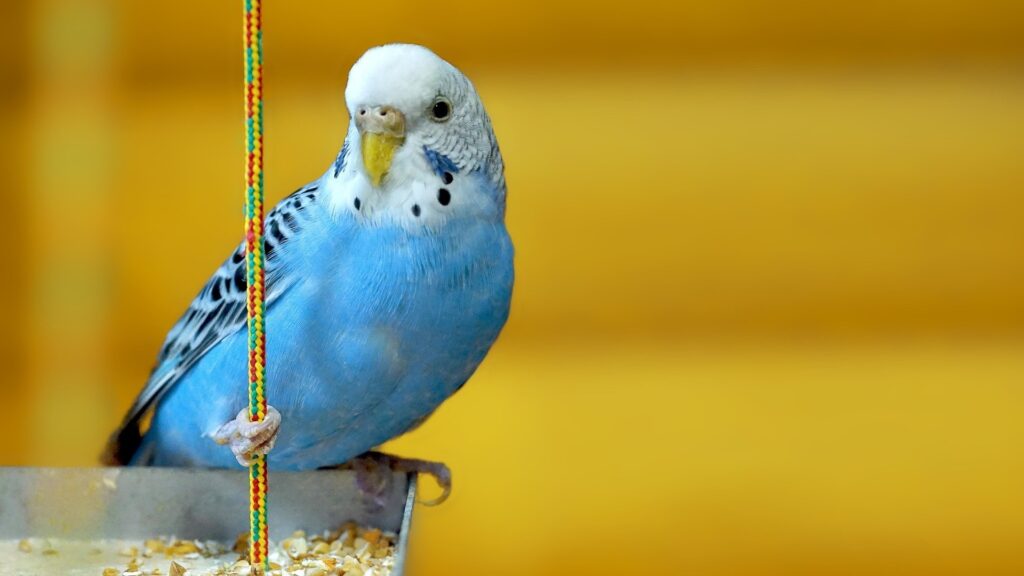
Conclusion
Parakeets can go without food and highlight the of responsible pet ownership and understanding the dietary needs of these delightful birds. While it is true that parakeets, like many animals, can technically survive for a day or two without food, it is by no means a practice, nor is it a reflection of their well-being. Parakeets, being small and having high metabolic rates, rely on a consistent and nutritious diet to maintain their parakeet health and vitality. Depriving them of food for extended periods can lead to severe consequences, including malnutrition, weakness, organ damage, and undue stress.
It is essential to prioritize their nutritional needs and them with regular meals that mimic their natural diet. Pet owners should always ensure that their parakeets have access to clean, fresh water as dehydration can set in rapidly and be equally harmful. Responsible parakeet ownership involves planning for their care in case of unexpected situations or absences. Having a trusted friend or pet sitter who can proper care, including food and attention, is essential to ensure your parakeet’s well-being.
Ultimately, parakeets, like any pets, depend on their owners to meet their basic needs, including food, water, shelter, and love. Neglecting these essential requirements can have detrimental effects on their physical and mental health. As responsible pet owners, it is our duty to ensure that our parakeets receive the care they deserve and that their dietary needs are met consistently. While they can survive a short period without food, it is not a practice to be taken lightly, and it should never be intentional. Regular feeding, access to clean water, and planning for their care in our absence are essential components of responsible parakeet ownership.

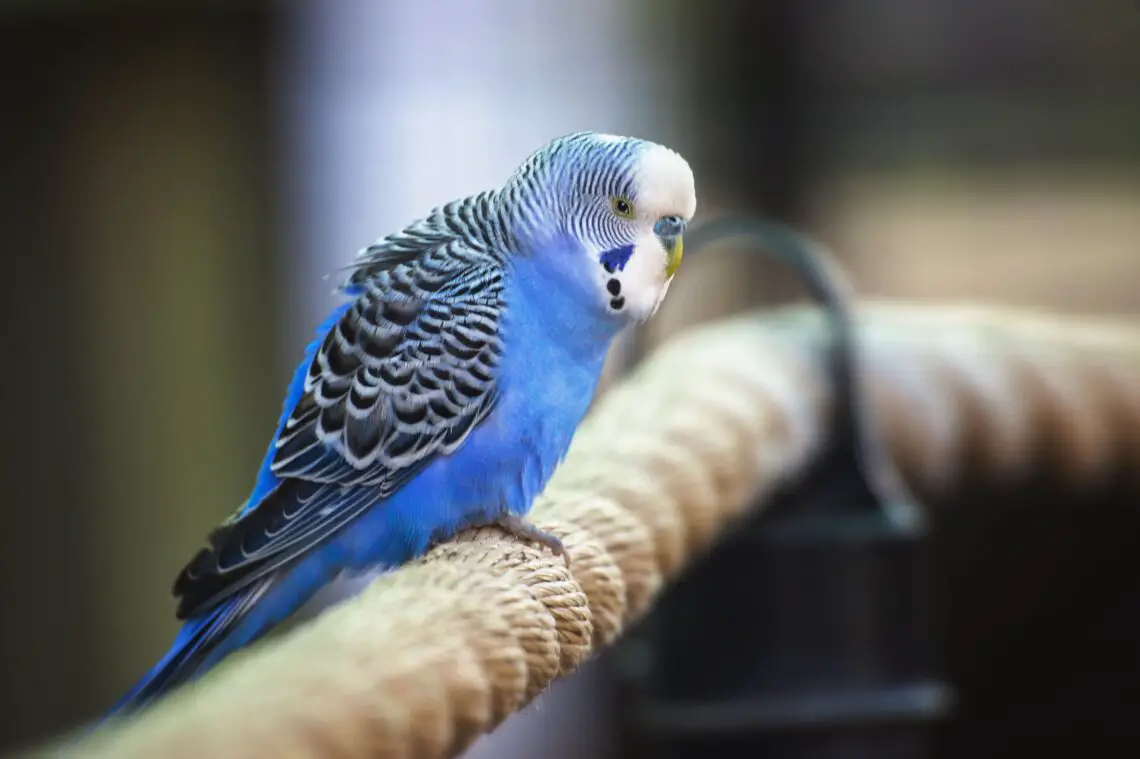
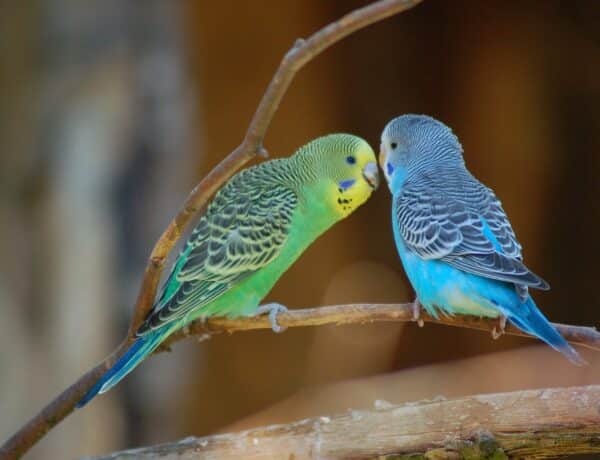
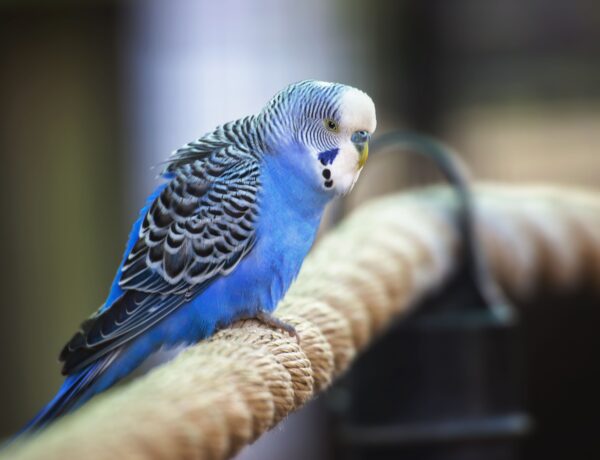
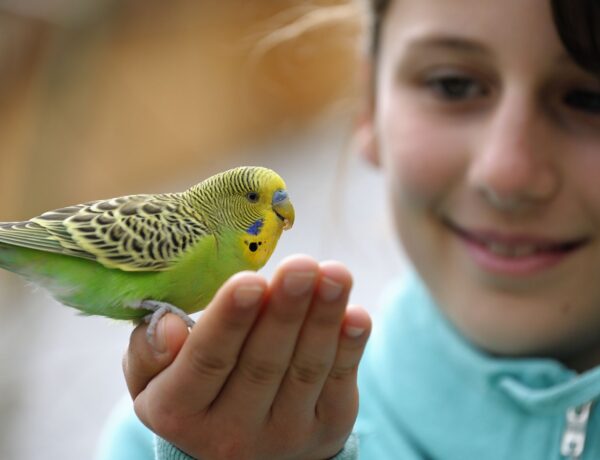
No Comments